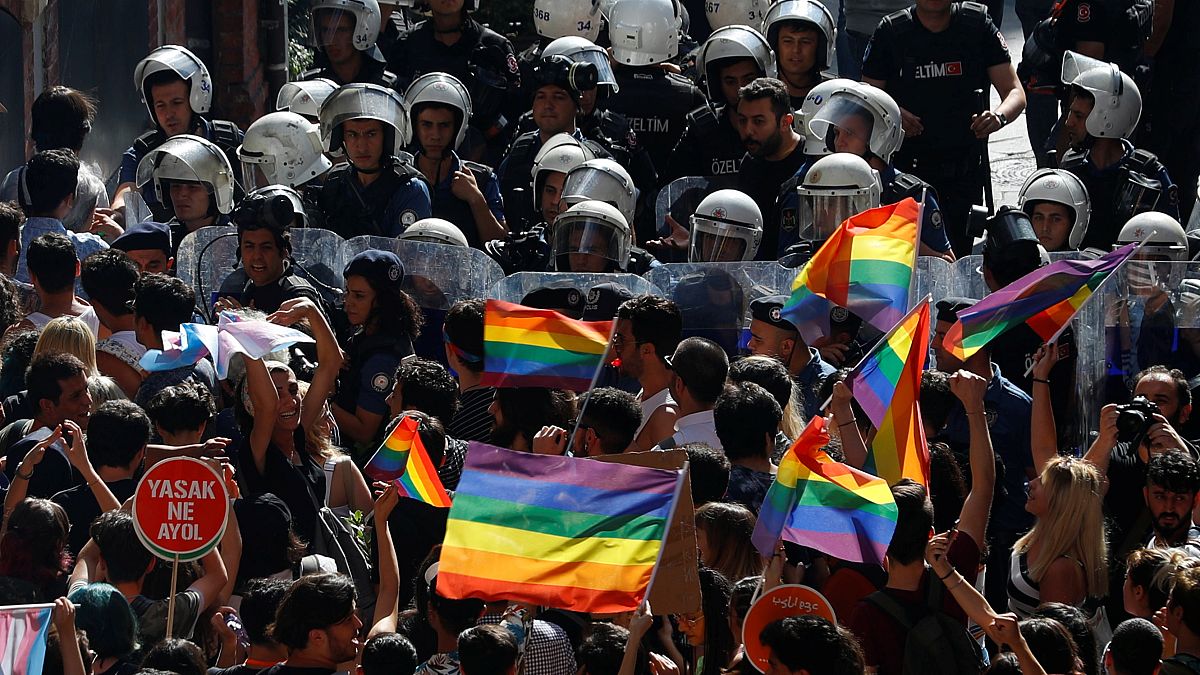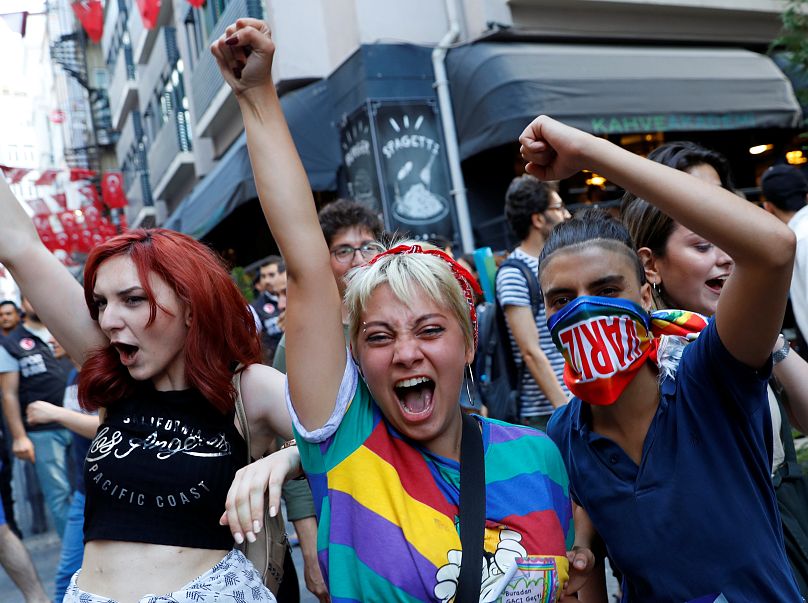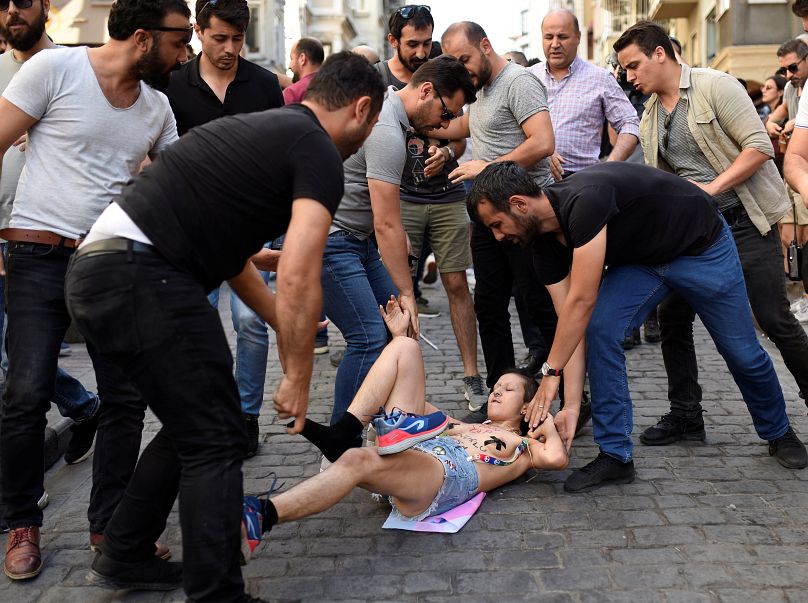After a whopping 100,000 people marched for Gay Pride in 2014 in Istanbul, authorities prohibited the march from taking place in subsequent years.
Hundreds of activists marched in Istanbul for Gay Pride on Sunday in spite of the ban on the event. Police allowed the demonstrators to march briefly before they dispersed the crowd using tear gas and rubber bullets.
After a whopping 100,000 people marched for Gay Pride in 2014 in Istanbul, authorities prohibited the march from taking place in subsequent years. Organisers of the march said that the city governor's office banned the march from the square designated for public demonstrations, as well as from the central district of Taksim.
Pride marches were also banned in the country's capital, Ankara, as well as Izmir, Turkey's third largest city.
On a side street to Istanbul's primary pedestrian avenue, however, hundreds waved rainbow flags and cheered. One 21-year-old activist said that "despite the bans, we will continue screaming our existence, our identity."
Organisers of the event reached an agreement with authorities that they would read a short statement for the media and disperse peacefully. After the statement was read, however, police dispersed those who lingered with tear gas and rubber bullets.
Homosexuality has been legal in Turkey for decades, however Istanbul Pride says that authorities in the city rejected numerous locations for the march as they deemed the LGBT+ community "societally objectionable."
Directly criticising the government of Turkey, organisers said that "it has been demonstrated once more that those who ban our Pride March with copy-and-paste reasons such as public peace and security, terror, public morality, and public health can not govern the state.”
“Our demands neither disturb public peace nor threaten public security. Our demands are essential in a constitutional state in order for us to have equal rights of citizenship" they continued.
Amnesty International has been outspoken about Turkey's efforts to stop the march from happening, naming it an "arbitrary ban."
Background
The banned Gay Pride parade has come at a time of great political upheaval in Turkey. Just last week, a rerun of a mayoral election saw a decisive victory for the opposition party. This election, of which the first took place in March, saw President Erdogan lose an election for the first time in 25 years.
The incoming mayor of Istanbul, Ekrem Imamoglu, has voiced support for LGBT+ parades, saying that any peaceful demonstration should be allowed.
Comparatively, Istanbul is considered somewhat of a refuge for the LGBT+ community in Turkey. Civil liberties in the city, however, have been a growing concern for the international community since the government crackdown following the failed military coup three years ago. After the coup took place, over 77,000 were arrested with a further 160,000 dismissed from their jobs after alleged involvement in the uprising.
While the ruling Justice and Development Party (AKP) say that they have improved the rights for minorities in their 16 years of power, critics say that Erdogan and his deeply religious party have shown minimal interest in protecting the rights of minorities and women.




